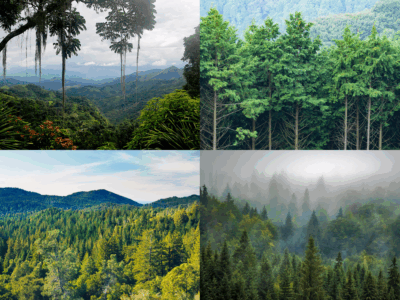Region: International
A Landmark Geoengineering Conversation in the Global South
The UCLA Emmett Institute helps sponsor and organize the Degrees Global Forum, the largest event of its kind to date.
I post periodically about developments in the debate over solar geoengineering (SRM) and its potential role in response to climate change. News accounts may suggest that this debate moves fast, but it has three enduring, large-scale themes. First, SRM presents high stakes for climate risks and response – which most governments thus far have been …
Continue reading “A Landmark Geoengineering Conversation in the Global South”
CONTINUE READINGClimate Adaptation Finance: Garbage In, Garbage Out
A new study reveals the hard truth about the lack of real adaptation data.
Today in Science, a new study delicately uses a lot of words to tell us something that many have long suspected: we really don’t know what in the world is going on. The study, by three scholars at Oxford University’s Environmental Change Institute, notes that pretty much all climate adaptation funds focus on inputs — how much has …
Continue reading “Climate Adaptation Finance: Garbage In, Garbage Out”
CONTINUE READINGImmigration Raids are an Attack on Climate
The Drain is a weekly roundup of environmental and climate news from Legal Planet.
It’s hard to watch the Trump administration test drive authoritarianism in California. Since the inauguration, I’ve found solace in slowly rewatching The West Wing, a good bedtime story for anyone who feels nostalgia for partisan politics of yesteryear. Anyone else doing this? It’s uncanny how my rewatching has lined up with real world events. In …
Continue reading “Immigration Raids are an Attack on Climate”
CONTINUE READINGWhy Do Heat Pumps Have a Bad Rap? Lies
The Drain is a weekly roundup of environmental and climate news from Legal Planet.
I just listened to dozens of people tell me that heat pumps don’t work, may cause homelessness, and can bankrupt small businesses. This was shocking news to me, in no small part because I’m currently in the process of installing a heat pump in my condo. Obviously, I don’t want to waste money, sleep on …
Continue reading “Why Do Heat Pumps Have a Bad Rap? Lies”
CONTINUE READINGSupply-Side Regulations & Clean Vehicles
As Congress votes to undermine California’s sovereignty to set supply-side standards on polluting vehicles, CLEE’s research shows why these policies are so effective
In May 2025, both the U.S. House and Senate passed resolutions to revoke California’s Clean Air Act waivers, which allow the state to enforce stricter vehicle emissions rules than federal standards (see Ann Carlson’s post on this issue). If signed by the President—and if successful in the face of court challenges to their dubious legality—these …
Continue reading “Supply-Side Regulations & Clean Vehicles”
CONTINUE READINGClimate Lawsuits Now a Matter of Life and Death
The Drain is a weekly roundup of environmental and climate news from Legal Planet.
What a week for watchers of climate litigation. Big new filings, claims of death and destruction, a landmark ruling, and a juicy hearing all in the span of 36 hours. First, there was what the New York Times described as “the first wrongful death lawsuit” to be brought against oil and gas companies over claims …
Continue reading “Climate Lawsuits Now a Matter of Life and Death”
CONTINUE READINGGas Price Politics and Desperate Moderates
The Drain is a weekly roundup of environmental and climate news from Legal Planet.
In 18 years of working in newsrooms around Los Angeles, I talked with lots of political campaigns — but a phone call from Antonio Villaraigosa in spring of 2018 stands out. I was at my desk in the cramped newsroom of KCRW, sitting in between All Things Considered host Steve Chiotakis and producer Ben Gottlieb, …
Continue reading “Gas Price Politics and Desperate Moderates”
CONTINUE READINGThe Problem is Not Brazil. The Problem is COP
The Drain is a weekly roundup of climate and environmental news from Legal Planet.
“Crazy.” That’s how one young Brazilian described what’s happening in Belém to get ready for COP30, the annual UN climate negotiations which will take place in the Amazon this November. We struck up a brief conversation while I was visiting the Museu Afro Brasil in São Paulo, a museum that chronicles the history and culture …
Continue reading “The Problem is Not Brazil. The Problem is COP”
CONTINUE READINGGovernors Lead the Fight on Forests and Climate
To see how governors are leading the fight against deforestation, look no further than a meeting happening this week in Brazil.
When the annual U.N. climate conference descends on the small Brazilian rainforest city of Belém in November 2025, it will be tempting to focus on the drama and disunity among major nations. Only 21 countries had even submitted their updated plans for managing climate change by the 2025 deadline required under the Paris Agreement. The U.S. is pulling out of …
Continue reading “Governors Lead the Fight on Forests and Climate”
CONTINUE READINGIs Brazil Ready for COP30? No One Is Ready for COP30
The Drain is a weekly roundup of climate and environmental news from Legal Planet.
It’s officially less than 6 months until COP30 — when tens of thousands of people will descend on the Brazilian city of Belém for the annual UN climate conference — and no one is ready. For one thing, Belém is an impoverished city of 2.5 million that can’t build enough hotels for the 50,000 expected delegates …
Continue reading “Is Brazil Ready for COP30? No One Is Ready for COP30”
CONTINUE READING







